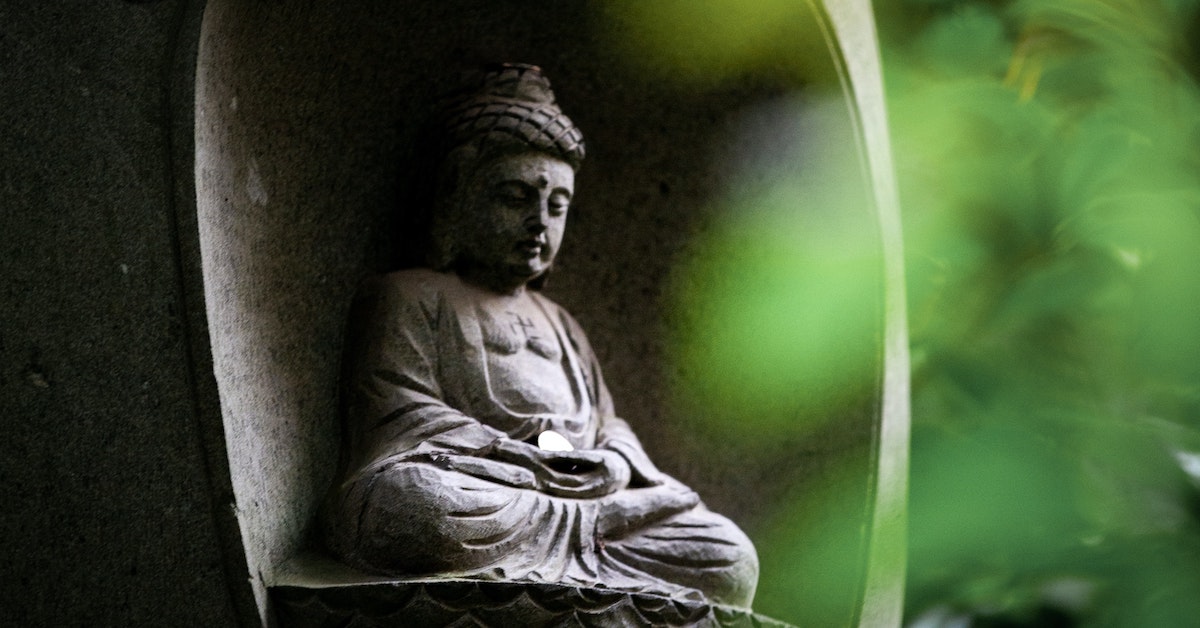I got a Muse neurofeedback headband a few months before the pandemic began, and I used that most days for several years, usually for twenty minutes to an hour a day. Of course I had experience meditating years ago, but using the Muse was helpful in some ways. I could see it being more helpful for an absolute beginner, esp. if one needs "gamification" to stay motivated.
The Muse app plays the sound of rain (or a beach, a city park, or whatever you choose), and the goal is to reduce the rainstorm's intensity so that you hear birds chirping randomly when you do well (intetiontally designed to be distracting- this is supposed to accelerate learning more than unaided meditation). The system that Muse uses was developed by measuring the brainwaves of Tibetan Buddhist monks and feeding the data into a deep learning algorithm to produce a biofeedback profile for training, and there is an initial calibration process at the beginning of each session, where it records a baseline of the sensors.
I also have an emWave machine from Heartmath years ago. It's a little pocket device that you put your thumb on, or attach a sensor to your ear. It has a pacer light to time your breathing, and it gives you feedback on your heart rate variability, with the goal trying to raise it as high as possible. Heart rate variability (HRV) tends to go up when people experience positive thoughts or experiences, and you can use various techniques along with the breathing to raise heartrate variability, such as visualization. If you practice it often enough, it becomes a habit and your HRV remains high and you feel calmer and more centered for a good while afterwards.
HRV has alot of positive health effects, and high HRV is associated with less stress and disease. It may also slow aging in general. HRV tends to decrease as one ages in the general population, but I've found mine has actually increased over the last couple of years (it went up quite a bit during the pandemic after I adopted a plant-based diet), and I can "beat" 3 out of 4 levels without trouble on the emWave device, getting moderately consistent high level of heartrate variability. When I first got the device about a year before the pandemic, I had trouble even on the 2nd level.
Various forms of prayer seem to be associated with higher heartrate variability, based on what I've read and also in experiments I've done in the past. During extensive HRV training, you can start to notice your heart or the center of your body as the focus of your consciousness- it's just naturally drawn there. Now days you can get apps on some celphones using the infrared sensor in the phone. You can also buy Bluetooth heartrate sensors you can put on your finger, or worn as a ring or watch that can be paired with a phone app.
I have been experimenting with measuring the effects of HRV training on the brain with the Muse EEG. So far I notice that HRV training increases alpha waves, but not nearly as much increase in theta waves (associated with dreaming or deep meditation). This is unlike the usual breath-following meditation I learned from TNH's school, where there is a roughly equal increase in theta and alpha waves.
Buddhism contradicts Christianity. For example, in Buddhism, the universe is eternal and in Christianity it is finite. There are many other ways they contradict as well. Dr. Gary Habermas said he had almost become a Buddhist but is now the leading expert on the resurrection.
Buddhism doesn't really have a singular cosmology, there are various stories about the origins of the universe. Some are similar to Jainism, others are similar to Hinduism. It's not a major theme in Buddhism, the Buddha himself was said to have been dismissive of those sorts of questions, focusing on the existential, psychological, or moral, over the metaphysical or cosmological... at least in the early Buddhist texts.
I asked some Buddhists about this a few months ago, about how the evidence for cyclical cosmology is very weak, and they seemed disinterested. Most seemed to believe life was too precious to waste time on what amount to "speculation", and that their time was better spent entrusting themselves to their Buddhist practice.
The question about "mindfulness" is whether it includes altered mind states. I think it does and as such would be something we might consider "not being sober-minded." I was a part of a DBT group therapy that focusses on mindfulness. It's actually quite a bit less effective than Christian prayer and such.
Meditation allows a person to develop more focus, self-reflection, and self-control, and has been demonstrated to reduce anxiety and depression better than many existing therapies, such as antidepressant drugs. In advanced meditators who have meditated for decades, there is a large increase in gamma wave activity in the brain, even during ordinary consciousness. Everybody experiences some gamma wave activity, it's involved with synchronizing activities across the entire brain, and it's most salient in those "eureka!" moments of insight that ordinary people experience from time to time.
Of course there is evidence Christian prayer might be beneficial on the brain as well, especially in people that pray alot, such as monks or nuns, as it appears to reduce age-related cognitive decline and lead to better mental health than those that prayer very little. But this may be due to similarities of focused, intentional prayer with meditation rather than the truth-value of Christian beliefs.



